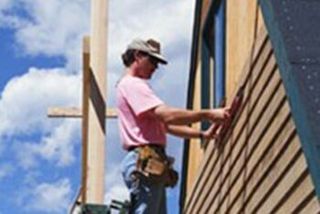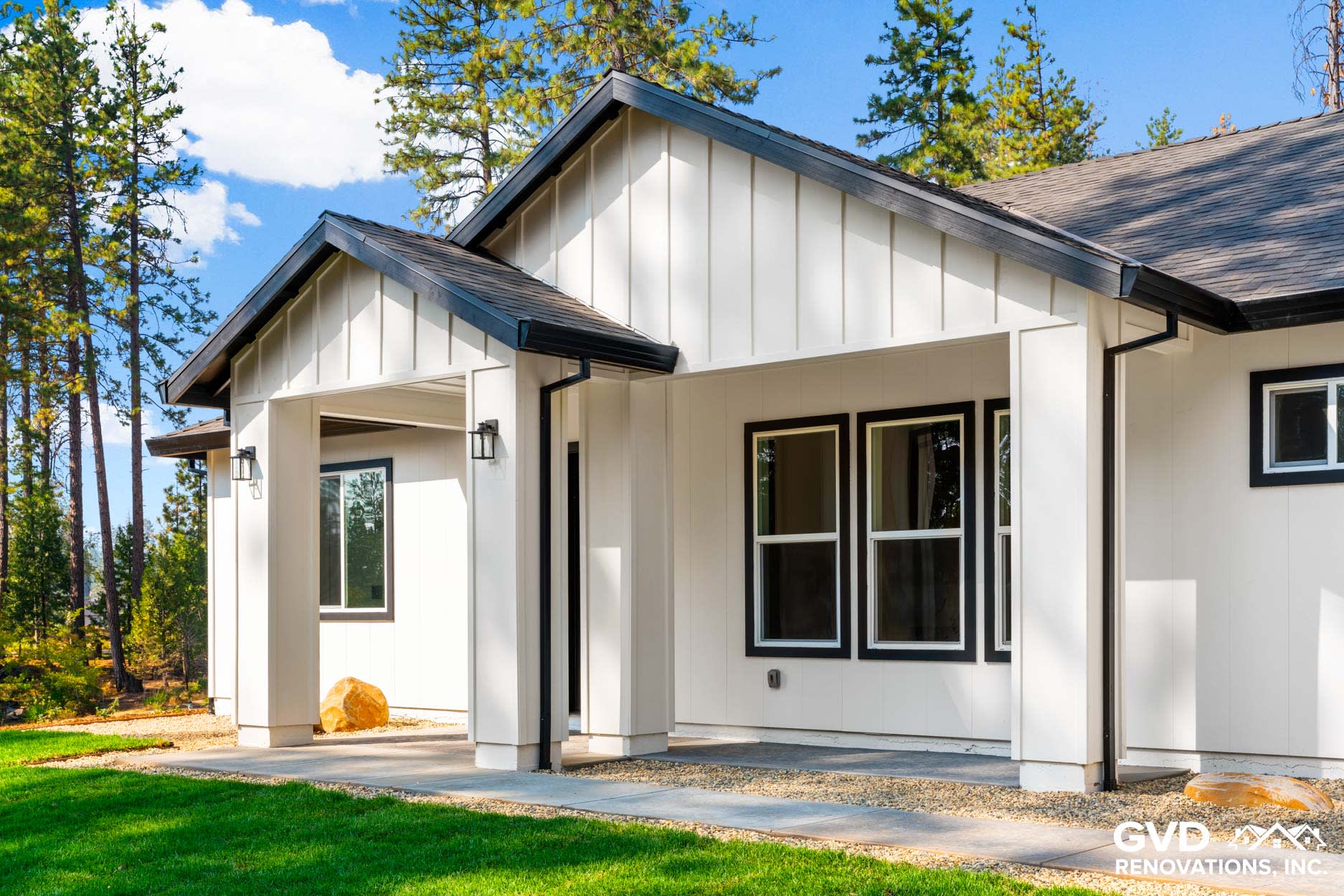Morris Siding Contractor with Exceptional Service and Top-Notch Materials
Morris Siding Contractor with Exceptional Service and Top-Notch Materials
Blog Article
The Essential Guide to the Various Sorts Of Home Siding and Their Unique Benefits
In the world of home improvement, choosing the right house siding is a vital choice that impacts both visual allure and useful performance. The variety of materials offered, such as wood, plastic, fiber block, cement, and steel, each offer unique benefits that cater to different demands and choices. Comprehending these differences can significantly improve the longevity and value of a residential or commercial property - morris siding contractor. Nonetheless, with numerous options to think about, which home siding product really sticks out for your details task? Exploring these choices can cause informed choices that align with both style and functionality.
Wood House Siding
Wood home siding, a popular selection for household outsides, uses a timeless aesthetic that combines all-natural appeal with architectural stability. This siding material is readily available in different styles, consisting of clapboard, roof shingles, and board-and-batten, allowing homeowners to customize their façade to match their layout preferences. Wood house siding is normally crafted from sturdy varieties such as cedar, redwood, or yearn, which are known for their strength and ability to hold up against ecological stress factors.
One of the primary advantages of wood home siding is its outstanding insulation buildings, which can add to energy performance and lower home heating costs. In addition, wood home siding is eco-friendly, making it an eco pleasant choice when sourced sustainably. Normal maintenance, including paint or staining, can lengthen its life expectancy and boost its appearance, permitting property owners to maintain the natural appeal of the timber.
However, possible downsides include vulnerability to pests, rot, and weather condition damages, requiring ample treatment and maintenance - morris siding contractor. Regardless of these concerns, when effectively cared for, wood house siding can provide a resilient and attractive solution that enhances the character of a home while using a cozy, welcoming atmosphere

Plastic House Siding
Vinyl siding has actually arised as a leading choice for home owners seeking a low-maintenance outside choice that combines longevity and cost. This functional material is crafted from polyvinyl chloride (PVC), making it immune to different weather problems, including wetness and UV rays. Consequently, plastic exterior siding does not warp, rot, or discolor, guaranteeing durable aesthetic allure.
One of the key benefits of vinyl house siding is its comprehensive variety of styles and shades, enabling home owners to achieve the desired seek their home without the requirement for frequent repainting. Additionally, plastic home siding is easy to mount, which can significantly minimize labor expenses throughout building and construction or renovation projects.
Vinyl exterior siding likewise contributes to energy performance. Numerous choices function insulation support, which enhances thermal efficiency, assisting to preserve comfortable indoor temperatures and potentially lowering power costs. Its smooth surface assists in easy cleansing, calling for just routine cleaning with a garden tube to eliminate dust and debris.
Fiber Concrete Siding
Fiber cement exterior siding has acquired traction among builders and homeowners alike because of its amazing combination of durability and aesthetic convenience. Made up of a blend of cement, cellulose, and sand fibers, this exterior siding option is crafted to hold up against severe weather condition conditions, consisting of high winds, hefty rainfall, and temperature variations, making it a durable option for residential outsides.

Among the primary advantages of fiber cement home siding is its resistance to insects, such as termites, and its non-combustible nature, offering boosted fire safety. morris siding contractor. Furthermore, it is offered in a vast array of styles, structures, and shades, allowing home owners to accomplish their wanted aesthetic without compromising efficiency
An additional advantage is its low upkeep needs; fiber concrete home siding generally needs paint or discoloration every 5-10 years, which is less constant than various other materials. Additionally, its long life adds to a lower overall price of ownership, as it decreases the requirement for regular fixings or substitutes.
Ultimately, fiber cement exterior siding stands for an exceptional financial investment for those looking for a resistant, appealing, and functional exterior choice, incorporating both kind and feature to improve the home's visual appeal.
Metal House Siding
The allure of metal siding exists in its durable durability and modern-day visual charm, making it a favored choice for contemporary style. Offered in products such as aluminum and steel, metal siding offers an array of coatings and shades, allowing homeowners to attain an individualized look that matches their design vision.

Power efficiency is one more considerable benefit, as lots of steel home siding items are made with insulation alternatives that help regulate interior temperature levels. This can result in decreased energy costs gradually. Furthermore, steel house siding is often recyclable, making it an eco-friendly selection for sustainability-minded home owners.
The installment procedure for metal exterior siding can be relatively straightforward, resulting in a quicker turn-around time for building and construction jobs. Generally, steel exterior siding combines Related Site functionality and design, making it a functional choice for those seeking a visually appealing and long-lasting exterior finish.
Block and Stone Exterior Siding
Brick and rock home siding stands apart as a timeless selection that improves the aesthetic beauty of any type of home. Known for their resilience and reduced maintenance, these materials give a phenomenal return on financial investment while elevating the home's aesthetic charm. Offered in various shades, textures, and patterns, block and stone can be tailored to suit varied architectural designs, from traditional to modern-day.
Among the main advantages of brick and rock siding is their energy performance. Both products possess natural shielding residential properties that aid control interior temperature levels, possibly decreasing home heating and air conditioning costs. Furthermore, they use superior fire resistance compared to click to read other home siding alternatives, adding to enhanced security.
One more advantage is their longevity. Block and stone can last for decades, usually requiring very little maintenance past periodic cleansing. Unlike timber siding, they are impervious to insects and rot, making sure a durable exterior that withstands the elements.
Conclusion
In recap, the option of house siding significantly influences a home's aesthetic allure, power efficiency, and upkeep demands. Each kind of helpful hints home siding-- whether wood, plastic, fiber metal, concrete, or brick and rock-- provides one-of-a-kind benefits customized to various homeowner choices and environmental problems.
One of the primary advantages of wood home siding is its excellent insulation residential or commercial properties, which can contribute to energy effectiveness and lower heating expenses. Furthermore, timber home siding is biodegradable, making it an ecologically friendly alternative when sourced sustainably.One of the key benefits of steel house siding is its resistance to numerous ecological factors.Energy efficiency is one more considerable advantage, as lots of steel exterior siding products are created with insulation choices that aid control indoor temperatures. Each type of siding-- whether wood, vinyl, fiber concrete, block, or metal and rock-- provides special advantages customized to numerous homeowner preferences and environmental conditions.
Report this page